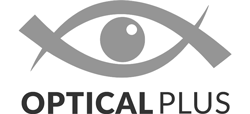Children’s sight tests
All children under the age of 16 are entitled to NHS funded sight tests, plus an optical voucher which entitles you to help towards the cost of glasses if required.

Good eyesight is crucial in making sure a child develops to their full potential at both school and socially. It is especially important to look after children’s eyes as the eye is still developing throughout early childhood. If problems are detected and treated early, it can make a lasting difference. Your local optometrist will be able to spot and manage vision problems that may affect your child’s development. Research has shown that approximately 20% of school aged children have an undiagnosed vision problem.
What age should children get their eyes tested at?
An eye exam is recommended from the age of 3 or 4 so that conditions are picked up and treated early. A child does not need to be able to read to have their eyes examined. There are many tests that we can do to assess vision and spectacle prescription even if your child does not yet know their letters. If you have any concerns regarding your child’s eyes it is never too early to see an optometrist. After the first test, it is recommended to return every two years or as recommended by your optometrist.
How do I know if my child is having any problems?
Some eye conditions do not display any signs or symptoms so that is why an eye exam is so important. Some signs of eye problems to look out for include:
- An eye appearing to turn inwards or outwards
- Difficulty concentrating
- Behavioural problems
- Headaches
- Sitting close to the TV
- Frequent eye rubbing
Certain conditions run in families. If there is family history of a squint (turn in the eye), glasses from a young age or having to wear a patch over an eye it is advisable to get your child’s eyes tested.
My child had their eyes checked at school so do they need a sight test?
Vision screening is a basic test that is designed to pick up reduced vision in one or both eyes. Screening can detect that something is wrong but cannot diagnose exactly what is wrong.
A sight test is a more comprehensive check that can pick up many other conditions, including colour vision defects, binocular vison problems and the need for glasses.
